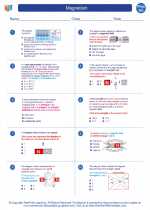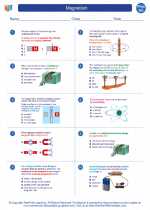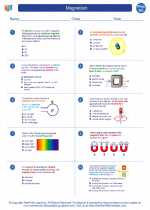Decomposition Reactions
Decomposition reactions are a type of chemical reaction in which a compound breaks down into two or more simpler substances. This process is the opposite of a synthesis reaction, where two or more substances combine to form a more complex compound. Decomposition reactions can be initiated by heat, light, electricity, or the presence of another substance.
General Form of a Decomposition Reaction
The general form of a decomposition reaction can be represented as:
AB → A + B
Where AB is the compound that decomposes into the simpler substances A and B.
Examples of Decomposition Reactions
Some common examples of decomposition reactions include:
- Thermal Decomposition: When calcium carbonate (CaCO3) is heated, it decomposes to form calcium oxide (CaO) and carbon dioxide (CO2).
- Electrolytic Decomposition: Water (H2O) can be decomposed into hydrogen (H2) and oxygen (O2) gas through the process of electrolysis.
- Photolytic Decomposition: Silver chloride (AgCl) decomposes into silver (Ag) and chlorine (Cl2) when exposed to light.
Factors Affecting Decomposition Reactions
Several factors can influence the rate and extent of decomposition reactions:
- Temperature: Higher temperatures generally increase the rate of decomposition reactions, as more thermal energy is available to break the chemical bonds within the compound.
- Presence of Catalysts: Some decomposition reactions can be catalyzed by the presence of specific substances, which can lower the activation energy required for the reaction to occur.
- Concentration: In some cases, the concentration of the reactants can impact the rate of decomposition reactions.
Study Guide
To understand and master decomposition reactions, consider the following study guide:
- Review the general form of a decomposition reaction and be able to identify examples of this type of reaction in everyday life.
- Understand the factors that influence decomposition reactions and be able to explain how temperature, catalysts, and concentration affect the reaction rate.
- Practice balancing chemical equations for decomposition reactions to ensure a solid understanding of the stoichiometry involved.
- Explore the applications of decomposition reactions in various industries, such as in the production of industrial chemicals or the decomposition of organic matter in composting.
By mastering the principles of decomposition reactions, you will gain a deeper understanding of chemical processes and their applications in the world around us.
.


